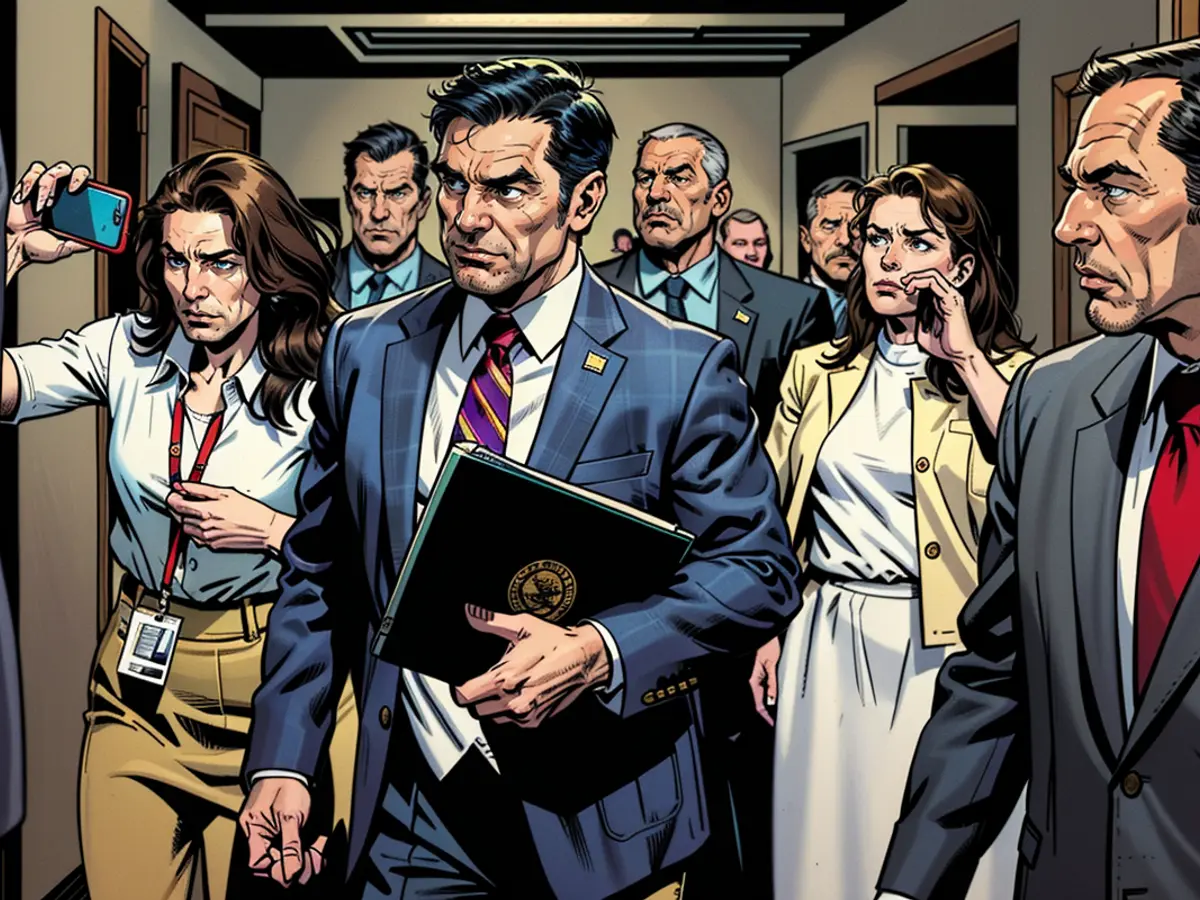Johnson, the Speaker, manages the funding dispute between Trump and the government with a slim parliamentary majority.
The government is facing a closure deadline towards the end of this month, but there's no clear consensus on a solution. The pressure is mounting, as sensitive politicians want to hit the election campaign trail before November's polls, fearing a shutdown might negatively impact their chances. The speaker's strategy could also impact his retaining his leadership position post-election.
Trump has jumped into the funding dispute, potentially making negotiations more complex. The Republican presidential nominee has stated that if Republicans don't get "unequivocal guarantees" on election security, they shouldn't approve a funding extension. This stance stems from Trump's ongoing efforts to undermine election integrity before the 2024 elections.
If Trump insists on his demand, it might make it even more challenging for Congress to pass a straightforward funding extension, a move widely viewed in the Capitol as the only possible way to avoid a shutdown.
Johnson, a Louisiana Republican, has been pushing for a six-month funding plan incorporating the SAVE Act, a controversial GOP bill requiring proof of US citizenship for federal election registration. However, this plan is seen as untenable in the Senate and faces opposition within the House GOP as well.
The speaker has expressed agreement with Trump, but he's limited in options and has no room for error with a narrow House majority and the Democrats controlling the Senate.
Last week, Johnson withdrew the GOP funding proposal after at least eight Republicans publicly opposed it, a number sufficient to reject the bill in the House alongside Democratic opposition.
"Congress has major responsibilities," Johnson told reporters, "which includes funding the government responsibly and ensuring fair and secure elections. That's what we're focusing on." He added, "We're going to keep working on this. The whip will do the heavy lifting and build consensus. We'll work through the weekend on this."
Johnson's efforts to pass a funding bill without Democratic support were slammed by Senate Majority Leader Chuck Schumer, a Democrat from New York.
"Johnson is not making progress by trying to pass a funding package without Democratic support," Schumer stated. "We need a bipartisan bill where everyone collaborates to find a solution. You've seen the turmoil in the House due to Speaker Johnson's partisan approach, influenced by the far right. He's not making any progress."
Bipartisanship might be even more elusive given the election focus.
Schumer declared that the Senate will again vote on an IVF bill, following its failure to advance in June due to widespread GOP opposition and after Trump's announcement in August of a policy he'd implement as president, providing financing for in vitro fertilization treatments. However, he didn't specify how these treatments would be funded.
"Republicans can't claim to be pro-family while blocking IVF protection," Schumer said. "The American public deserves another chance to see if Republicans support IVF access or not."
CNN’s Ted Barrett, Lauren Fox, and Aaron Pellish contributed to this report.
In light of the approaching election, influential politicians are eager to engage in campaigning, fearing a government shutdown could harm their prospects.The ongoing political standoff over funding, with Trump's involvement and Johnson's proposed changes, has led to intense debates about election security and fairness.








